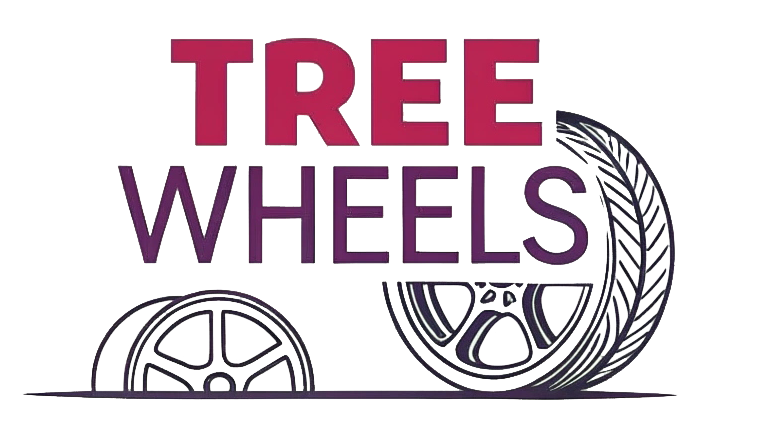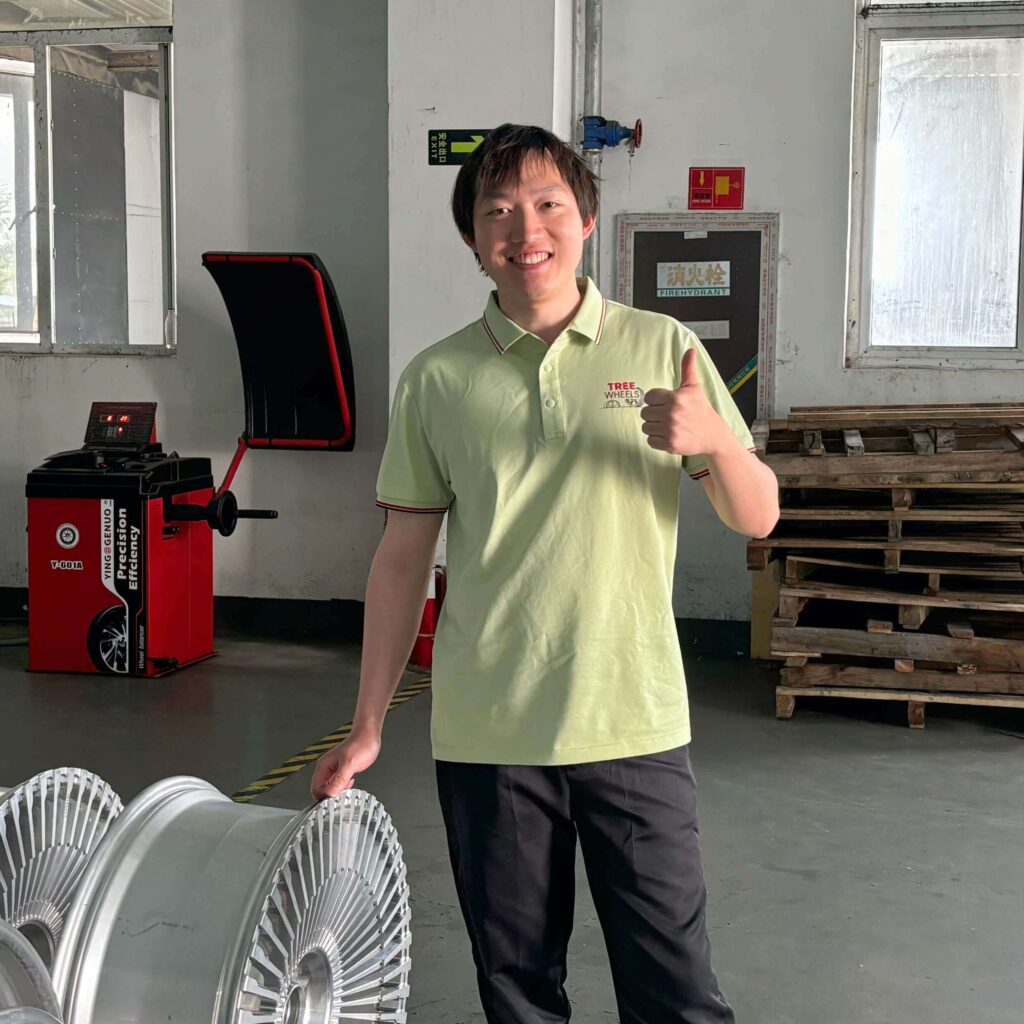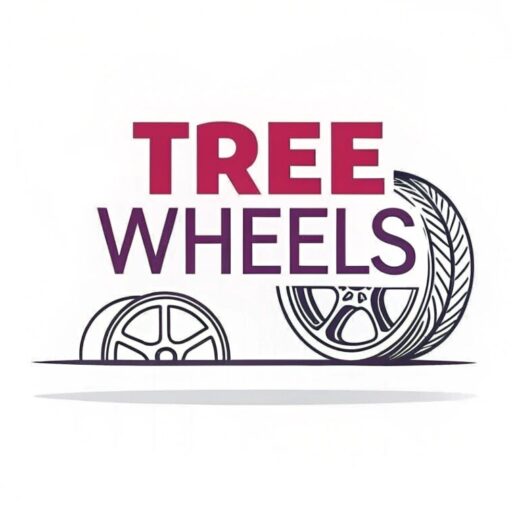Are you wondering if forged wheels are really worth the extra cost? You want wheels that can handle anything, right?
Yes, forged wheels are definitely stronger than cast wheels. Forging makes the wheel material denser and more aligned, which means forged wheels can take more impact and last longer than cast wheels.
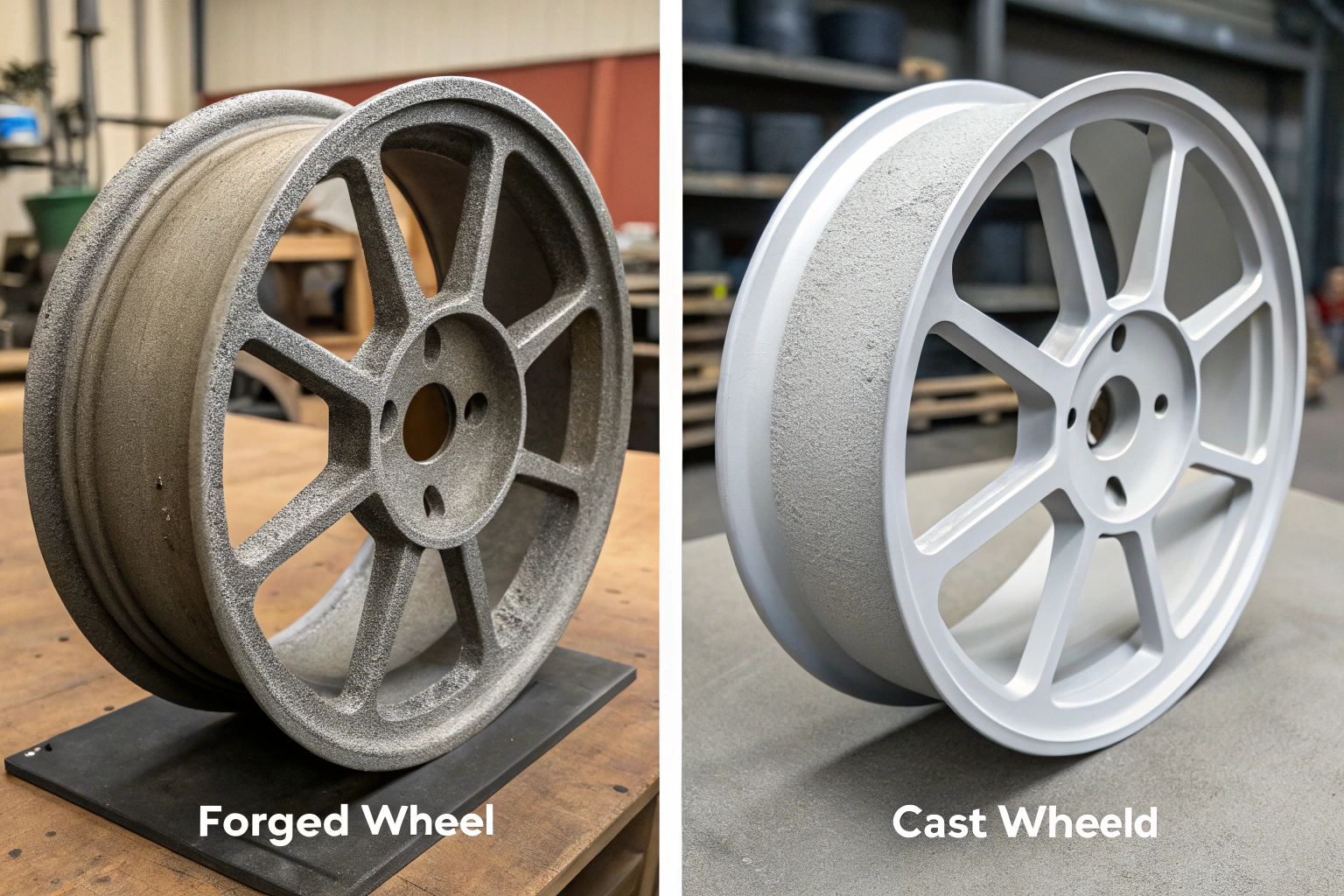
Choosing the right wheels can be confusing. Let's look at some common questions about forged and cast wheels to help you decide what's best for you.
What are the disadvantages of forged wheels?
Thinking about upgrading to forged wheels? But are there any downsides you should know about?
Forged wheels are usually more expensive than cast wheels. They also often take longer to make because the forging process is more involved.
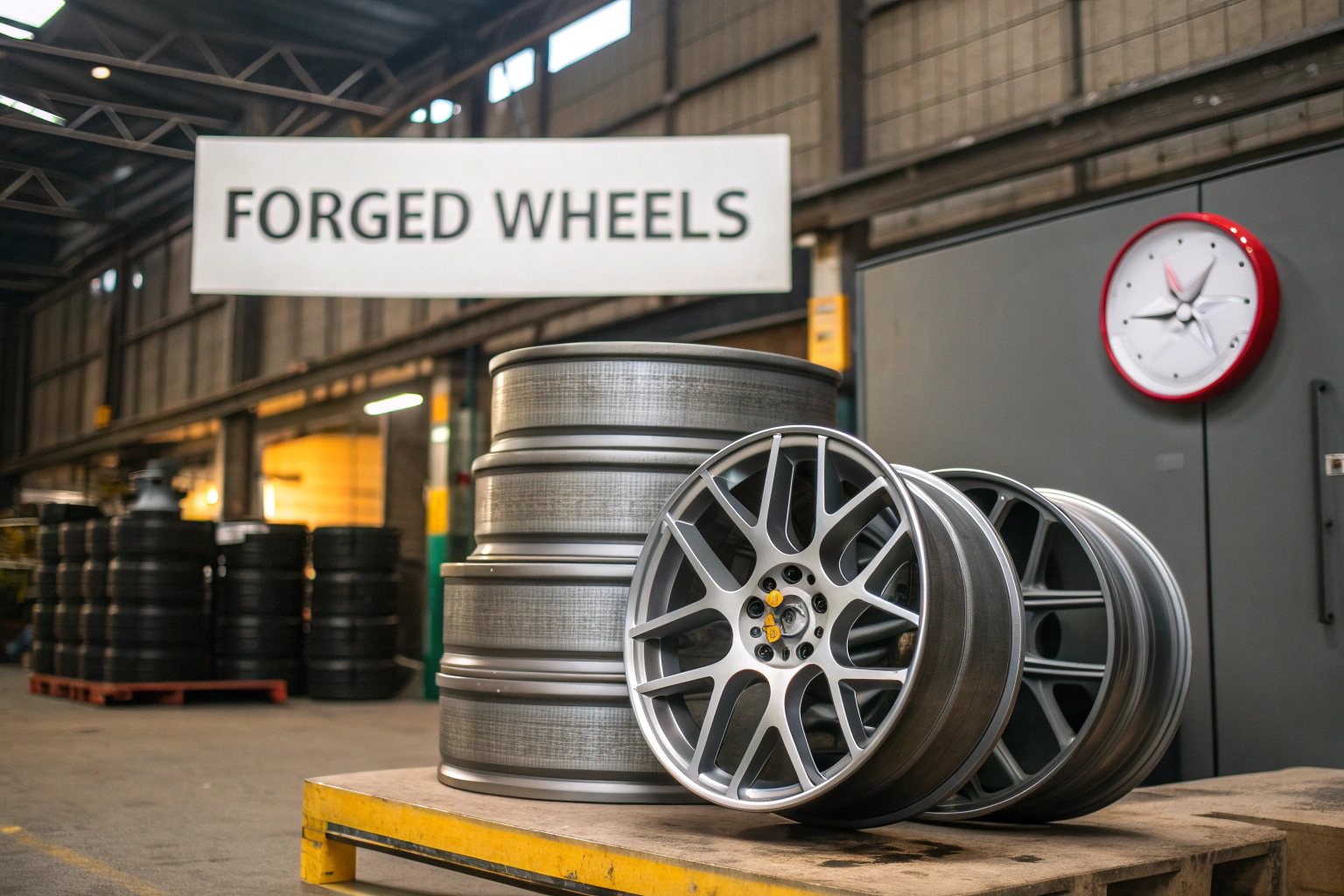
Forged wheels are fantastic for strength and performance, but they do come with some drawbacks. The biggest one is cost. Because forging is a more complex manufacturing process, forged wheels require more time and specialized equipment to produce. This naturally makes them pricier than cast wheels. Think of it like this: making a detailed sculpture takes more time and skill than pouring concrete into a mold. The same principle applies to wheel manufacturing. Also, because forged wheels are often made for specific performance needs or custom designs, the production runs can be smaller, which can also increase the price. For some customers who are focused purely on budget, cast wheels might seem like the only option. However, when you consider the long-term durability and performance benefits of forged wheels, especially in demanding driving conditions or for high-performance vehicles, the initial higher cost can be justified. At Tree Wheels, we focus on providing high-quality forged wheels because we believe in offering products that are not only strong but also a worthwhile investment for our customers in the long run. Even though cast wheels might be cheaper upfront, forged wheels offer superior performance and longevity, which aligns with our philosophy of "Sincerity Above All" - providing real value and lasting quality.
What type of wheels are the strongest?
Want the toughest wheels out there? Which type should you choose if strength is your top priority?
Forged wheels are the strongest type of wheels you can get. The forging process changes the metal structure, making it much stronger and more resistant to stress compared to cast wheels.
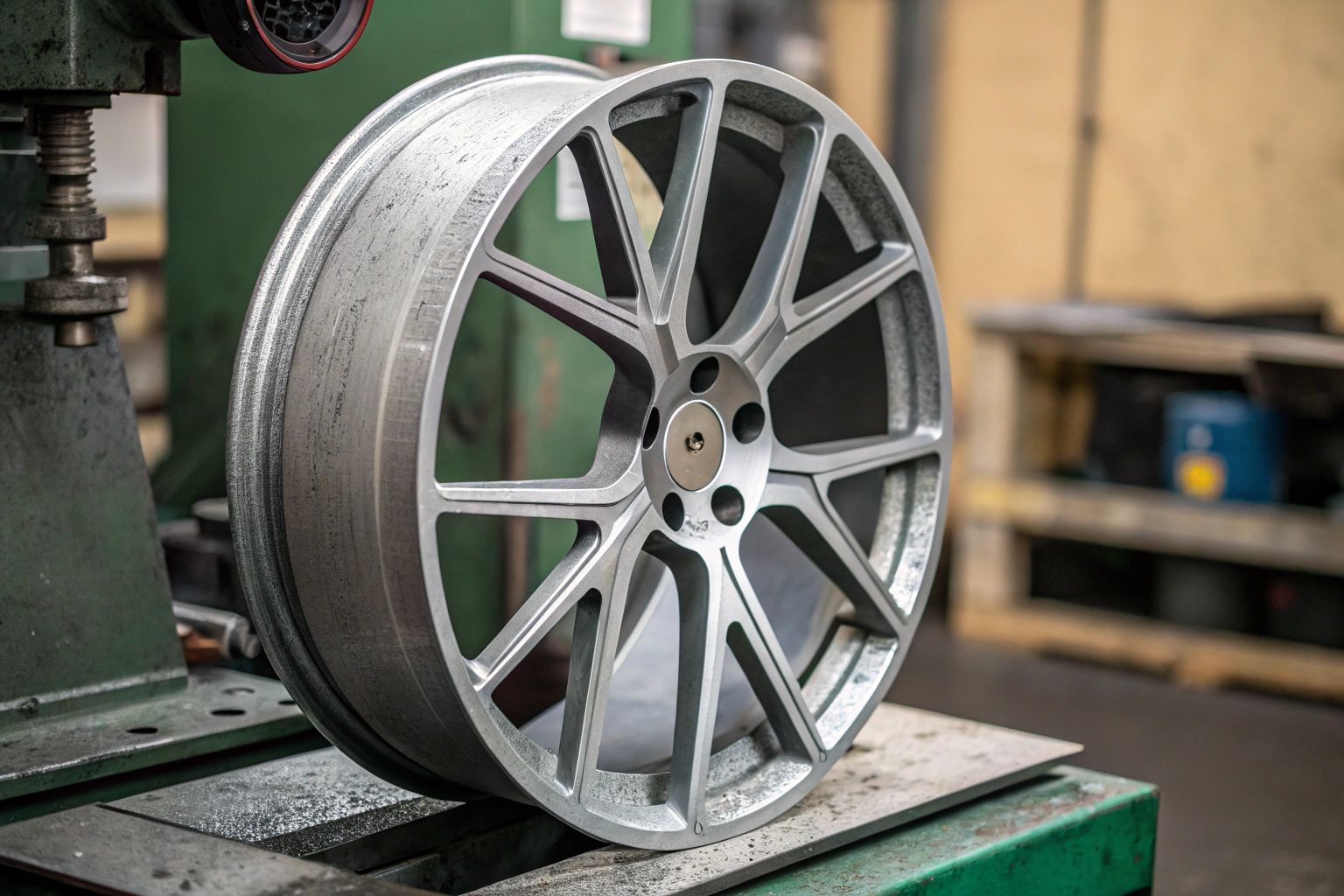
When it comes to sheer strength, forged wheels are the clear winner. This all comes down to how they are made. Imagine metal like dough. Casting is like pouring melted dough into a mold and letting it harden. Forging, on the other hand, is like repeatedly pounding and pressing that dough. This pounding process, using extreme pressure, changes the internal structure of the metal. It aligns the grain structure, getting rid of any air pockets and making the metal much denser and more uniform. Think of it like wood – solid wood is stronger than pressed sawdust because the fibers are continuous and aligned. Forged wheels are similar; their internal structure is much more organized, making them incredibly strong for their weight. There are different types of forged wheels too, like one-piece, two-piece, and three-piece forged wheels, each offering varying levels of customization and design complexity while maintaining that core forged strength. At Tree Wheels, we specialize in all types of forged wheels because we understand that for many of our customers, especially those in the performance and luxury vehicle markets, strength and reliability are paramount. We want to provide wheels that not only look amazing but can also handle the demands of high-speed driving and tough road conditions. This commitment to strength is a key part of our promise to deliver "high-quality, personalized, and internationally standardized" wheels.
Are Tesla wheels forged or cast?
Thinking about upgrading your Tesla's wheels? Are the wheels that come with Teslas forged or cast?
Most Tesla wheels are actually cast aluminum wheels from the factory. However, you can definitely upgrade to forged wheels for your Tesla if you want stronger and lighter wheels.
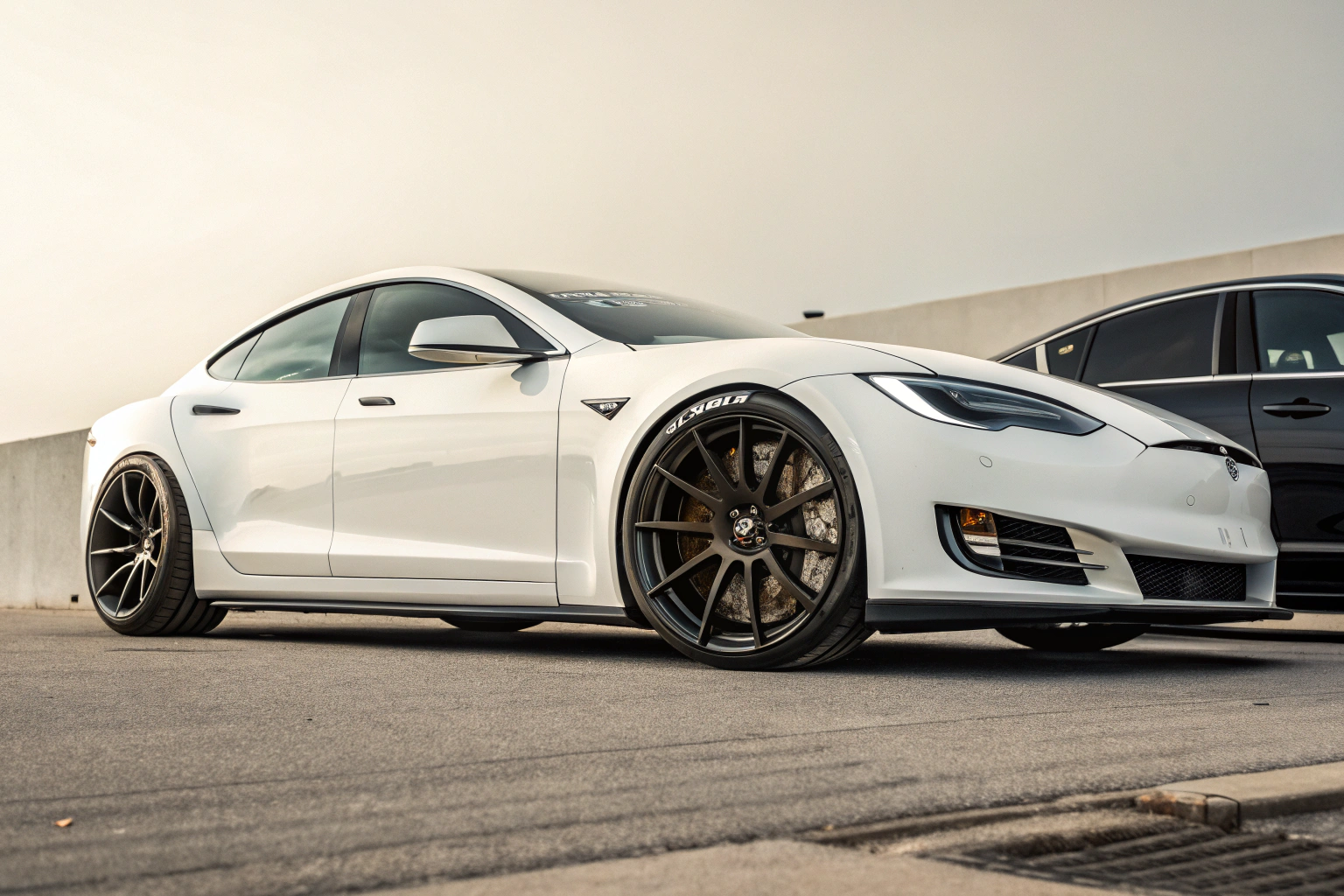
Tesla, like many other car manufacturers, typically uses cast wheels for their vehicles as standard equipment. Cast wheels are a good balance of cost and acceptable performance for general driving. However, for Tesla owners who are looking for enhanced performance, especially in terms of handling, acceleration, and even range, upgrading to forged wheels can make a noticeable difference. Forged wheels are lighter than cast wheels, and this reduction in unsprung weight improves a car's responsiveness and agility. Think about it like shoes – lighter shoes make it easier to run faster and jump higher. Similarly, lighter wheels allow your car's suspension to react quicker to road changes, improving ride quality and handling. Plus, as we've discussed, forged wheels are stronger, which can be an added benefit, especially for larger, heavier vehicles like Teslas. For Tesla owners wanting to personalize their ride and boost performance, forged wheels are a popular and effective upgrade. Tree Wheels offers custom forged wheels in various sizes, designs, and finishes that are perfect for Teslas, allowing owners to enhance both the look and performance of their electric vehicles. We can customize the wheels to meet specific Tesla models and driver preferences, ensuring a perfect fit and style that reflects the owner's individuality, all while upholding our commitment to "Sincerity Above All" in providing trustworthy and high-performing products.
Are cast wheels better than forged?
Are cast wheels completely inferior? Is there any situation where cast wheels might be a better choice than forged ones?
No, forged wheels are generally better for strength and performance. But cast wheels can be a good option if you're on a tighter budget or if you don't need the absolute maximum strength.
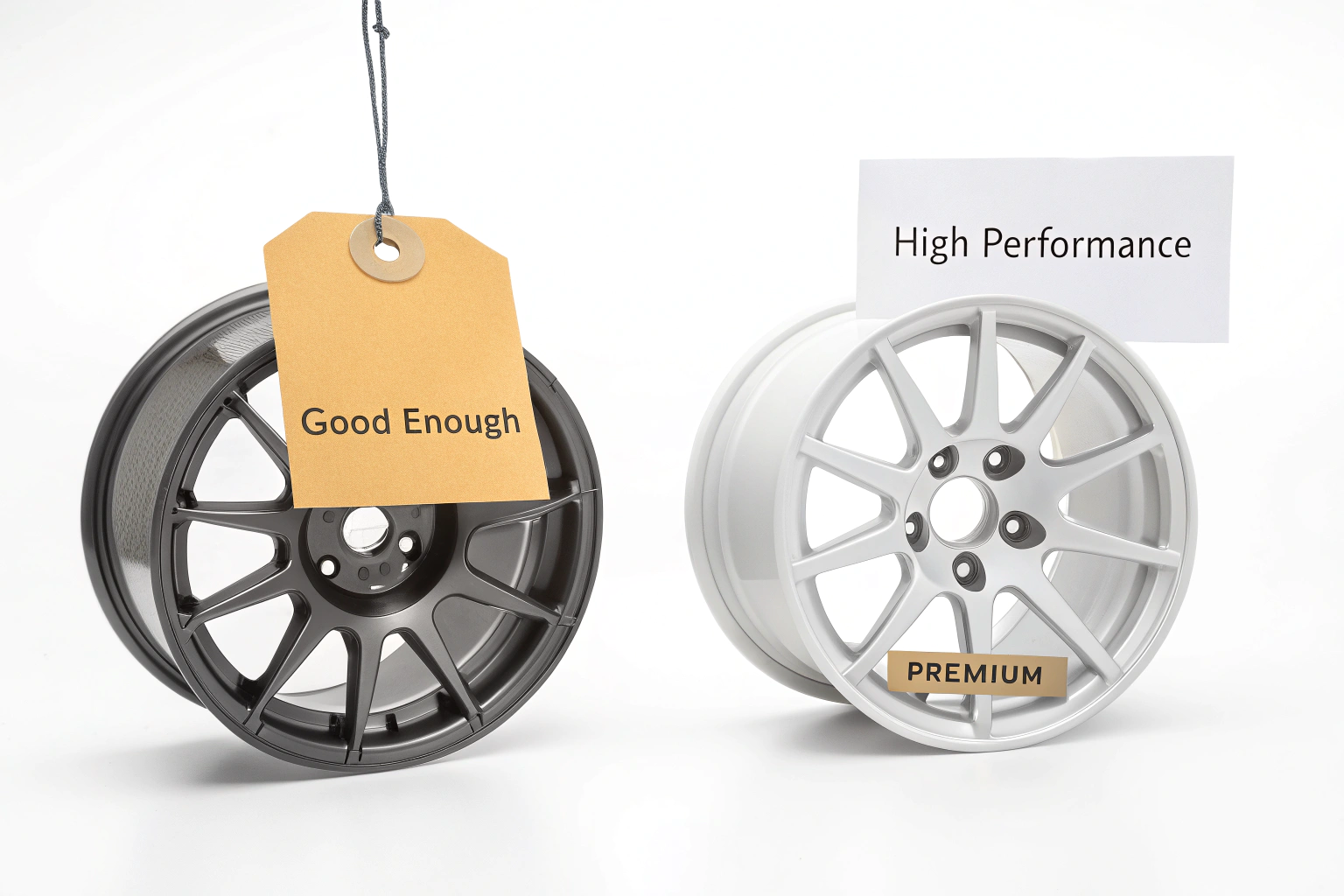
While forged wheels generally outperform cast wheels in terms of strength and weight, it's not always a simple case of one being "better" than the other. Cast wheels do have their advantages. The main one is cost. The casting process is much more straightforward and less expensive than forging, making cast wheels more affordable to produce and purchase. For everyday driving and for vehicles where extreme performance isn't the primary concern, cast wheels can be perfectly adequate. In fact, for many years, and still in some developing markets as you mentioned, cast wheels are the standard and perfectly acceptable choice. Think about it this way: if you're just driving to work and running errands, you might not need racing shoes. Regular sneakers will do just fine. Similarly, for many drivers and many types of vehicles, cast wheels are a practical and economical choice. However, if you are involved in motorsports, drive a high-performance vehicle, or frequently encounter rough road conditions, the superior strength and lighter weight of forged wheels become much more important. And as China has become a leading producer of wheels, the technology for both cast and forged wheels has advanced significantly. While casting was more common in the past, the increasing demand for higher performance and customization is driving the growth of the forged wheel market. At Tree Wheels, we focus on forged wheels because we aim to serve the high-end market where performance and customization are highly valued. We believe in providing products that offer a clear advantage in terms of quality and performance, reflecting our core value of "Sincerity Above All" by offering products that truly deliver on their promises.
Will forged rims crack?
Worried about wheel damage? Are forged wheels immune to cracking, or can they still fail?
While forged wheels are very strong, they can still crack under extreme impact, like hitting a curb hard. However, they are much less likely to crack than cast wheels because of their stronger material structure.
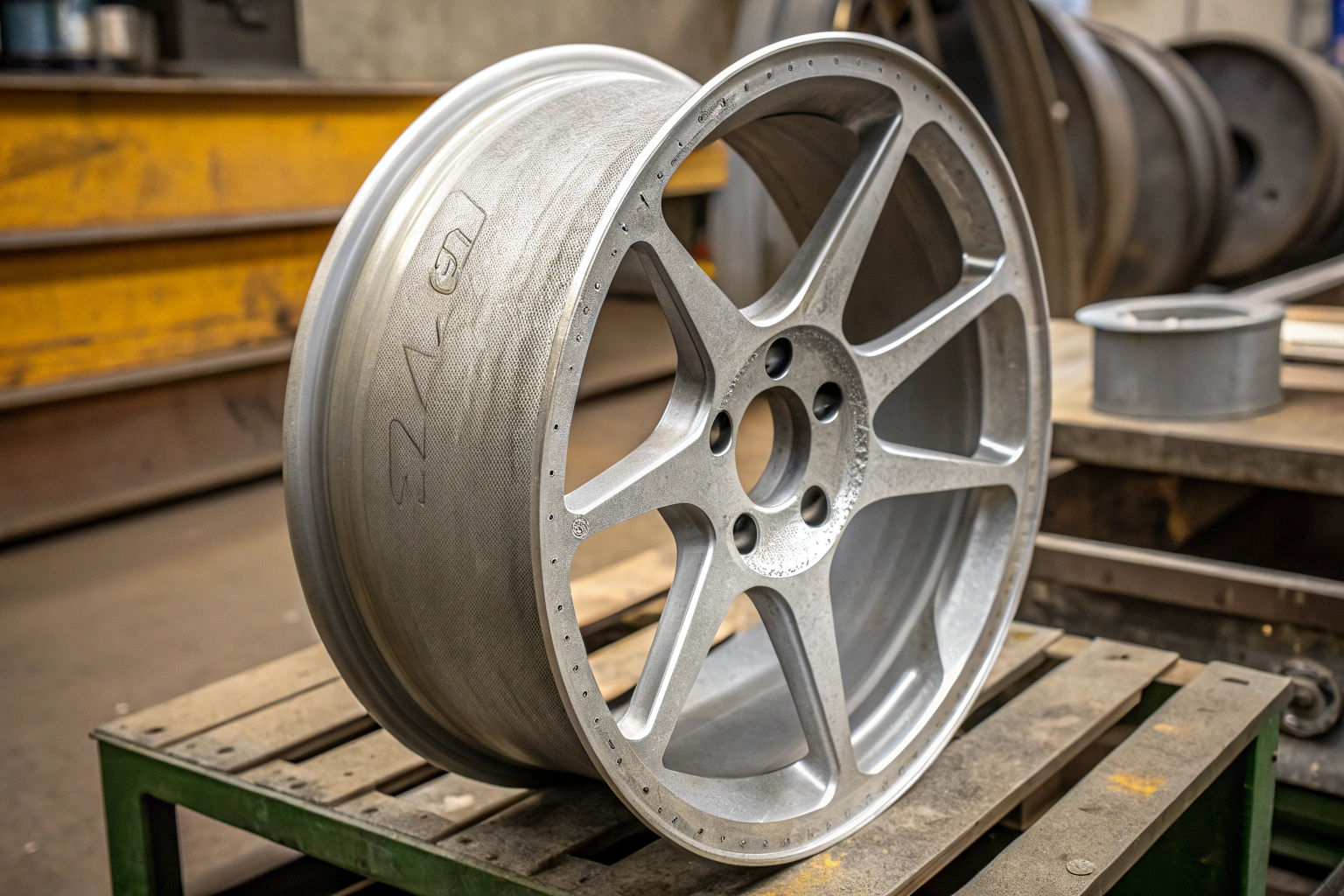
Forged wheels are significantly more crack-resistant than cast wheels, but they are not indestructible. Think of it like comparing a really strong bone to a more brittle one. The strong bone is less likely to break, but under enough force, it can still fracture. Forged wheels are similar. Because of the forging process, the material is denser and more resilient, meaning it can absorb more impact before failing. Cast wheels, with their more porous structure, are more susceptible to cracking under stress or impact. However, if a forged wheel experiences a severe impact, such as hitting a curb at high speed or encountering a deep pothole, it is still possible for it to crack. The key difference is that forged wheels are much more likely to bend or deform rather than crack catastrophically, which is a safety advantage. To ensure the highest quality and minimize the risk of any failure, at Tree Wheels, we adhere to strict quality control standards throughout our manufacturing process. We also aim to meet and exceed international standards like ISO and DOT, and are working towards TÜV and JWL certifications. Furthermore, we offer a 1-year warranty on our forged wheels, giving our customers added confidence in the durability and reliability of our products. This commitment to quality and after-sales service is all part of our brand philosophy of "Sincerity Above All," ensuring that our customers receive not only strong and reliable wheels but also peace of mind. My journey from international trade to focusing on forged wheels with Tree Wheels has been driven by a desire to offer products that customers can truly trust, and wheel strength and safety are at the heart of that trust.
Conclusion
Forged wheels are stronger and more durable, making them a worthwhile upgrade for performance and longevity. Choose forged for the best in wheel strength.
